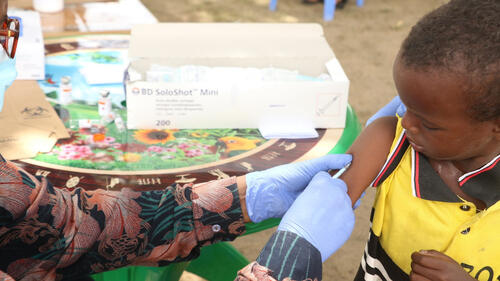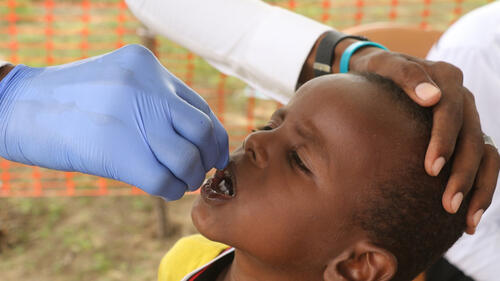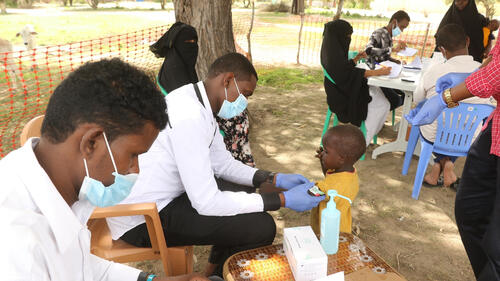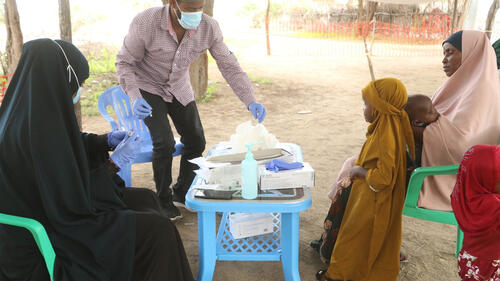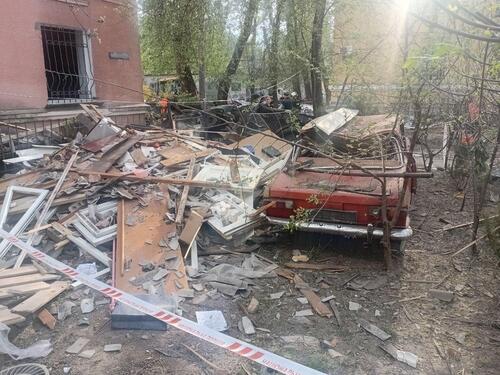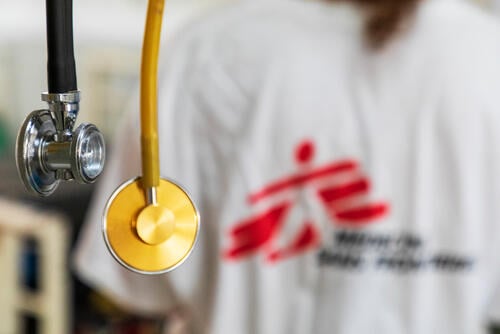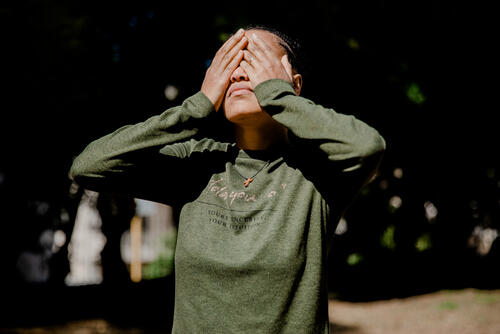Raaliyo Abukar Shuuriye, 33, from the border town of Dhobley, Somalia, knows that measles can kill.
“Measles is a deadly disease and I know people whose children have died from it,” Raaliyo says.
As recently as March and April, two children under five died from measles in Dhobley, during the most recent outbreak in the town. When Raaliyo heard that teams were vaccinating against measles, she was keen to get her 19-month-old twins and her three older children protected.
In May 2021, teams from Médecins Sans Frontières (MSF) supported Ministry of Health staff to run a month-long measles vaccination campaign in Dhobley, in Somalia’s Lower Juba region. Teams vaccinated 7,859 children, aged from six months to 15 years, against the disease. Children were also given vitamin A supplements, while under-fives were checked for malnutrition; those who needed treatment were referred.
Measles is highly prevalent in most parts of Somalia, affecting children of all ages all year round. The southern Lower Juba region has no properly managed routine vaccination programme owing to its poor health system, so small-scale outbreaks are frequent. Most vulnerable are children under the age of five.
Measles spreads when infected people cough or sneeze and is so contagious that one infected child can spread it to up to 90 per cent of unvaccinated children nearby.
“The communal nature of Somali people makes it even easier and faster for measles to spread within the population, making the disease highly prevalent in the Jubaland region,” says Adan Abdi, MSF’s medical advisor.
Since 2014, outbreaks in Jubaland have seen 3,904 children infected with measles and 29 deaths, according to the Ministry of Health. Many more cases are believed to have gone unreported.
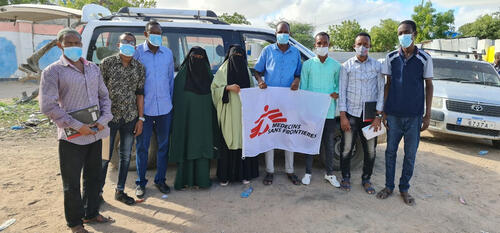
Controlling vaccine-preventable diseases such as measles is a huge challenge in Somalia, due to low routine immunisation coverage, population movement and the difficulties of reaching children who live in highly insecure areas or regions with poor roads and infrastructure, or who come from pastoralist families who move from place to place. Meanwhile, unvaccinated children from remote areas may spread the disease when they visit towns.
“Overcrowding, insecurity, low vaccination coverage are all factors that contribute to the spread of this disease,” says Abdi. “Measles is believed to be responsible for more child deaths than any other single microbe, due to complications from pneumonia, diarrhoea and malnutrition. Therefore, it is important to have a high vaccination coverage between people.”
Measles is a deadly disease and I know people whose children have died from it.Raaliyo Abukar Shuuriye
Measles also frequently results in acute vitamin A deficiency, which can lead to blindness. Globally, half of children who become blind die within a year, according to the World Health Organization.
“I’m very happy to have got my five children vaccinated today,” says Raaliyo, as she leaves the vaccination site. “We would really appreciate having these kinds of services brought to our doorsteps more often.”



